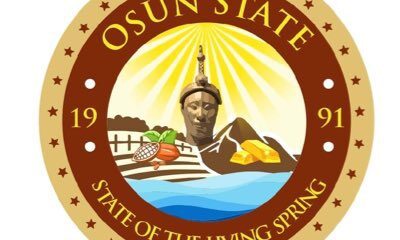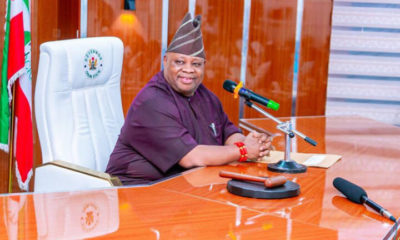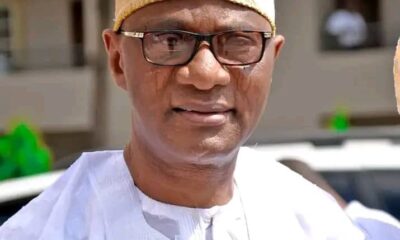Opinion/Feature
Osun: BVAS And The Misconception About The Technology
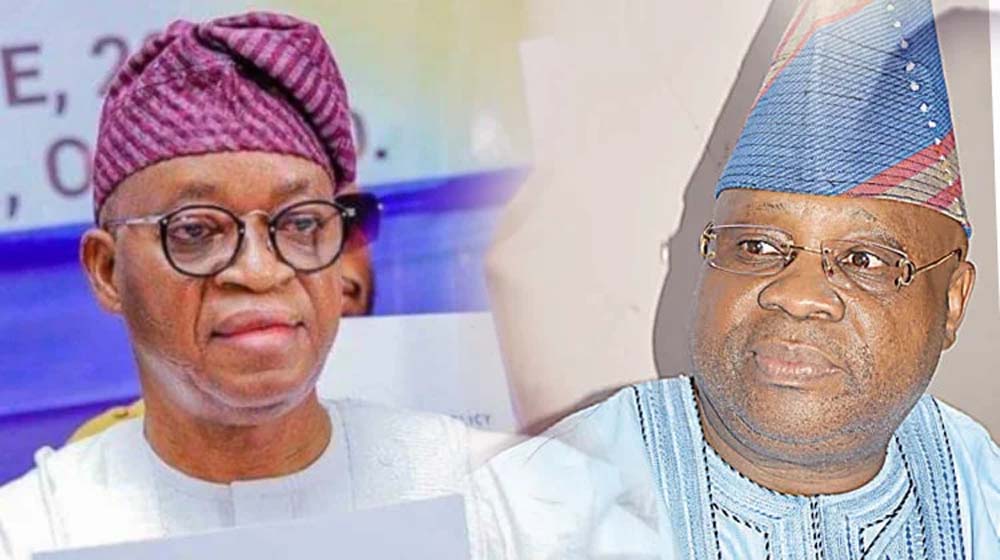
By Sarafa Ibrahim
Since his loss at the July 16 governorship election in Osun state, Alhaji Gboyega Oyetola and his party, the All Progressives Congress (APC) have embarked on moves to challenge the integrity of the outcome and have the results announced by the Independent National Electoral Commission (INEC) upturned.
They alleged before the Election Petition Tribunal that the election was marred by over-voting in 749 polling units and that the winner, Governor Ademola Adeleke, forged his certificate and was not qualified to participate in the election.
But has failed so far to establish any of the allegations raised before closing its case at the Tribunal. This must, however, be the reason for the fresh attempt to confuse the public by twisting the facts on Bimodial Voters Accreditation System (BVAS) in the latest article by Mr. Ismail Omipidan, the spokesman to Oyetola.
For the purpose of education, BVAS was an intervention by the electoral umpire to ensure that ballots cast in elections are actually valid and free of manipulation. Before its introduction, politicians easily abuse the use of incidence forms to award votes to themselves as there was no clear mechanism to validate that voters whose names appeared on the list were actually the ones who did cast the ballots ascribed to them.
With BVAS, only verified voters by the machine are allowed to vote, making it practically impossible for rigging elections. This was exactly what happened in the July 16 governorship election, which ended up producing Senator Ademola Adeleke as the winner of the poll after all ballots had been counted.
Now, to the question of over-voting raised by Oyetola and the APC. By law and logic, over-voting arises when the number of votes recorded in a polling unit exceeded the number of voters accredited in the said unit. But the basis of Oyetola and the APC claim rests on a BVAS report, which the INEC has dismissed as inaccurate.
According to the electoral umpire, the BVAS report being bandied around by Oyetola and the APC contained ‘incomplete and unsynchronized’ data, and so did not reflect the correct data of accreditations in the contested polling units. What this goes to suggest was that the claim of over-voting by the APC and Oyetola rests on faulty data, and that makes it unfounded.
A clear inference can be drawn from the inconsistencies that riddled the testimony of the two witnesses put forward by the APC and Oyetola at the Tribunal. In the first instance, Mr. Olanrewaju Isiaka, who was presented to the panel as a star witness by the petitioner’s counsel, conceded to the fact that the BVAS report is a secondary source of data.
What that admission clearly portrayed was that the data on a BVAS report must have come from a source, which in this case, was the BVAS machines. The BVAS machines were the device used at the various polling units to capture accreditation data and pass it on to the server in far away Abuja, where the BVAS report was generated from.
This simply implies that the BVAS machines are the primary source of data for accreditation and hold more weight in substantiating any claim of over-voting than the data that is sourced through a server. While I have no intention of dismissing the data on the server outrightly, the explanation of the INEC on the BVAS report in the possession of the APC is unambiguous and clear enough to understand.
For the benefit of those who may not know how these things work, the BVAS machines accredit voters and transmit the data to a central server of the INEC at its headquarters in Abuja. Mind you, the transmission is subject to the availability of the network, which the witness of the APC and Oyetola, acknowledged at the Tribunal, raising the likelihood of synchronization of the data at a point.
By synchronization, it means causing a set of files or data on one computer or device to be the same as on the other. In plain terms, making sure that the data on the BVAS machines are the same as the ones on the INEC server. That was exactly what the INEC did that the APC and Oyetola have tried endlessly to paint as unusual. In fact, it is something we experience regularly with our devices, making the hues of Oyetola and his party unnecessary.
You may have at a point received an incomplete message on your phone and after few hours or days, the broken part of the message is restored to your phone. What happened in the process that made the message complete as sent from the source is synchronization, which ensures that the message on your phone correspond with the message sent by the sender.
If the APC and Oyetola are convinced about their claim of over-voting, they have the BVAS machines readily available to prove it. Because unlike the data on the server, which is susceptible to hacking and network delays, the BVAS machines hold the primary data on every accreditation done for the election. By running away from it, and choosing a BVAS report that the maker of the document had openly dismissed as incorrect, showed the mischievous intent of APC and Oyetola to manipulate its way to power as it did in 2018.
This is why I find the question of Mr. Omipidan on why the INEC went ahead to announce the outcome of the July 16 governorship election when it is yet to synchronize the data on accreditation, funny. The position of the law on making a return for an election is very clear, and no part of either the Constitution or the Electoral Act supported his (Omipidan) position on the declaration of election results.
Section 62 of the Electoral Act, which faintly refers to server of a sort, centers on the Post-election procedure, meaning that whatever is contained in the server report, the BVAS machine itself, and the Form EC8A are the primary result platform. Even more, the section stipulates for the INEC to “MAINTAIN and UPDATE, on a continuous basis, a register of election results…” which goes to sanction the action of the electoral umpire to synchronize data on its server to make it consistent with what is on the BVAS machines.
Ibrahim Sarafa is a Public Affairs Analyst and writes from Osogbo, Osun state. He can be reached via his Twitter handle @SarafaNgr or email: neyoclass09@gmail.com
Opinion/Feature
Downstream Deregulation: Between Obasanjo’s Half-measures And Tinubu’s Bold Leadership

Opinion/Feature
UNCOMMON SCHOLAR, EXCEPTIONAL ADMINISTRATOR: MY TRIBUTE TO PROF. OLOYEDE AT 70

By President Bola Tinubu
As Professor Ishaq Oloyede turns 70 tomorrow, October 10, I pay a special tribute to this astute administrator, educator, author, and scholar, currently the Joint Admissions and Matriculation Board (JAMB) Registrar.
As the former Vice Chancellor of the University of Ilorin, Prof. Oloyede’s invaluable contributions to the nation through academia and public-sector administration have significantly impacted the academic community.
ALSO READ: Tinubu Congratulates Zainab Shinkafi-Bagudu On Her Election As President, UICC
His impactful tenure at the University of Ilorin, during which he introduced landmark ideas and innovations that helped the institution attain enviable heights, is on record.
Through patriotic dedication and commitment to his craft, Prof Oloyede imparted knowledge and character to thousands of students who underwent his teaching during his glorious and impactful academic career.
Indeed, the bedrock of development lies in education. Developing nations, including Nigeria, are in dire need of more scholars like Prof. Oloyede. His selfless sacrifices and innovative approaches to learning and leadership give hope for a brighter future.
Perhaps more remarkable is Prof. Oloyede’s transformative leadership at JAMB. He pioneered and sustained a series of reforms and technological innovations that have made the admission process in Nigeria transparent and credible.
In his eight years of stewardship at the board, thus far, Prof. Oloyede has demonstrated an uncommon commitment to financial integrity and accountability in public service. He has also raised the bar in administration and management.
I am proud of Prof. Oloyede’s accomplishments.
The nation owes the Professor of Islamic Jurisprudence a debt of gratitude for transforming JAMB, traditionally a non-revenue-generating government agency, into a consistent contributor to the national treasury through efficient financial management. His contributions to JAMB are invaluable and greatly appreciated.
On this occasion of his 70th birthday, I join members of the academic community, students, JAMB staff, and well-wishers in celebrating this scholar who, in words and deeds, has also done a lot to propagate the Islamic religion.
I pray that Almighty Allah will continue to honour the distinguished professor with health, wisdom and strength to serve the nation for many more years.
Opinion/Feature
Clarification On NNPCL Refinery Operations
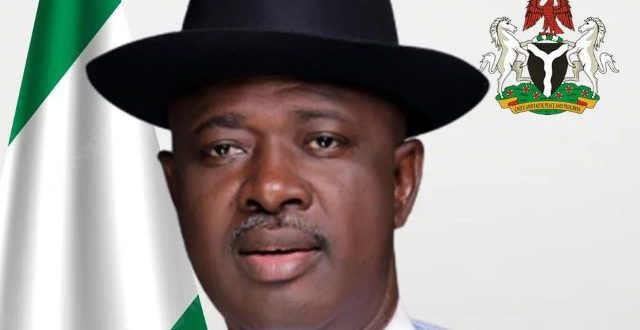
By Sen. Heineken Lokpobiri PhD
My attention has been drawn to statements made by Engr. Kamoru Busari, Director of Upstream in the Ministry of Petroleum Resources, who represented me at a recent conference in Lagos. I wish to categorically state that the claim that I directed the Nigerian National Petroleum Company Limited (NNPCL) to stop running its own refineries and focus solely on equity participation in other refineries is false. This does not represent my position as Minister overseeing the oil sector, nor does it reflect the stance of the Federal Government.
It is important to clarify that NNPCL is a company governed under the Companies and Allied Matters Act (CAMA), with a functional board and management. The Ministry of Petroleum Resources does not control or run NNPCL, as it operates independently like any corporate entity.
ALSO READ: NNPC/Seplat JV’s “Eye Can See” Programme Restores Vision, Hope In Imo
The oil and gas sector is fully deregulated, and the Nigerian government remains committed to promoting in-country refining. We encourage companies, including NNPCL, to operate independently, following global best practices. While we provide strategic guidance, we do not interfere directly in the operations of these companies.
I reaffirm our commitment to supporting the growth and independence of NNPCL, ensuring that its operations are in line with international standards for efficiency and transparency and profitability.
Sen. Heineken Lokpobiri PhD, Minister of State Petroleum Resources (Oil), wrote from Abuja, Nigeria

